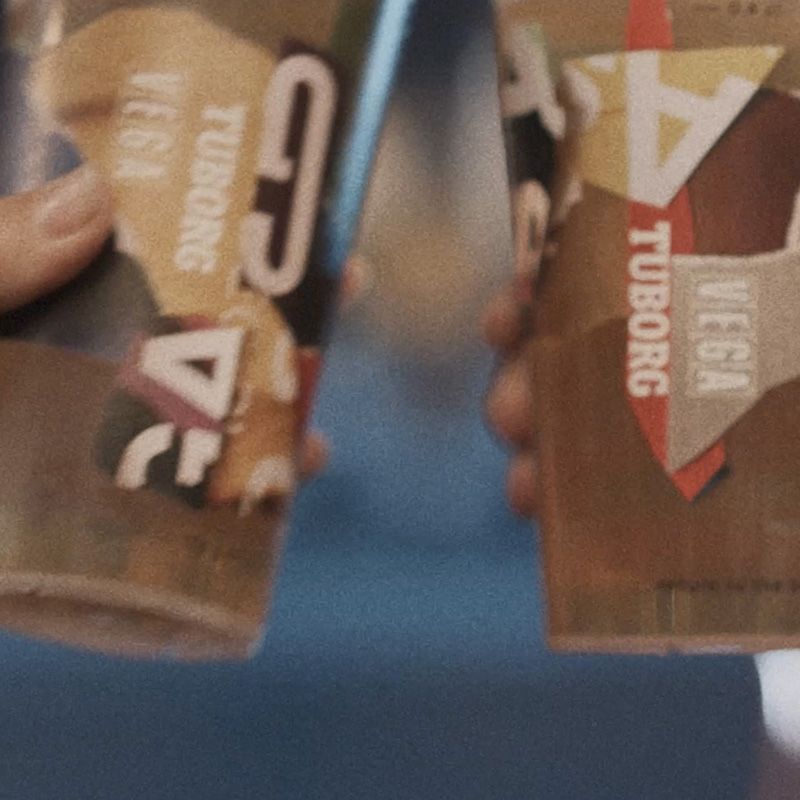
VEGAs
- Environmental footprint
Sustainability
VEGA aims to be a sustainable and responsible provider of cultural experiences.
In 2023, VEGA achieved a Green Key certification – an international eco-label awarded to businesses that go the extra mile to protect the environment. The certification is based on 13 key criteria, including environmental management, energy use, laundry and cleaning practices, and waste handling.
Focus on Organic and Local Producers
VEGA has set a goal for 80% of the spirits served in our bars and catering to be organic and/or locally produced. This commitment to organic practices is reflected throughout our entire bar selection.
We now sell more organic and B Corp-certified snacks, sodas, ciders, and non-alcoholic beverages than ever before. Nearly all of our spirits are produced in Denmark. In 2023, VEGA partnered with a local startup specializing in regenerative, organic production of healthy and great-tasting drinks. We also formed a long-term collaboration with a B Corp-certified coffee supplier that delivers organic coffee in circular packaging using fossil-free transportation.
Packaging Responsibility and Waste Reduction
Several years ago, VEGA replaced single-use plastic cups with washable, reusable ones.
Most recently, we’ve focused on reducing glass waste. Over 90% of the spirits we sell are now purchased in reusable containers or barrels of up to 200 liters. According to calculations based on CO2 emissions from the production, packaging, and transport of glass bottles by CONCITO – Denmark’s Green Think Tank – this shift reduces emissions by an estimated 7 tons of CO2 annually.
We still use glass bottles for spirits in our bars, but after use, they are washed and refilled under vacuum directly from the 200-liter barrels. Once a barrel is empty, it is collected, cleaned, and refilled.
We strive to ensure that as much of our waste as possible is either recycled or reused within a circular system. For example, VEGA typically sells more than 20,000 shot tubes per year, which could otherwise contribute to significant plastic waste. To combat this, we’ve made an agreement with the manufacturer to collect and recycle used tubes continuously, rather than discarding them as regular plastic waste.
VEGA also requires suppliers to deliver products in a way that minimizes packaging waste.
Waste Sorting
VEGA practices waste sorting in our offices as well as backstage, storage, and staff areas to ensure maximum recycling and reuse. All waste-handling procedures are clearly documented so that staff, suppliers, and guests know exactly how to dispose of waste properly.
Energy Optimization – Power Control
VEGA switched to LED lighting on all stages years ago. Since then, our biggest electricity consumers have been the many beverage fridges located in the bars, backstage areas, and storage rooms, which used to run 24/7.
With the introduction of our Power Control system, energy use has dropped significantly. Power Control uses smart relays to manage electricity for fridges and other equipment like bar signs, digital menus, screens, radios, and payment terminals. It’s integrated with our concert calendar and point-of-sale system, so power is only activated in areas needed for that day’s events. Fridges switch on a few hours before doors open to ensure drinks are chilled, and other equipment powers up 75 minutes before guest entry when bar staff begin setup. When bartenders close down their tills after an event, all power and cooling shut off automatically within five minutes.
Once fully implemented, VEGA’s energy management systems are expected to save up to 177,000 kWh and reduce CO2 emissions by 25 tons annually.
Catering Suppliers
VEGA communicates our sustainability policy clearly to all suppliers – including our catering partners. We aim to work with suppliers who have a strong commitment to environmental and sustainable practices, based on the following expectations:
- The supplier uses an environmental management system, e.g., ISO 14001 or EMAS
- The supplier holds environmental or energy certifications, such as the Nordic Swan, EU Ecolabel, FSC, or Organic Label
- The supplier has a documented environmental policy and action plan
- The supplier has conducted a life cycle assessment of their product(s)
- The supplier accepts producer responsibility for end-of-life product disposal
- The supplier collects and reuses or recycles packaging
- The supplier has calculated the CO2 footprint of their production